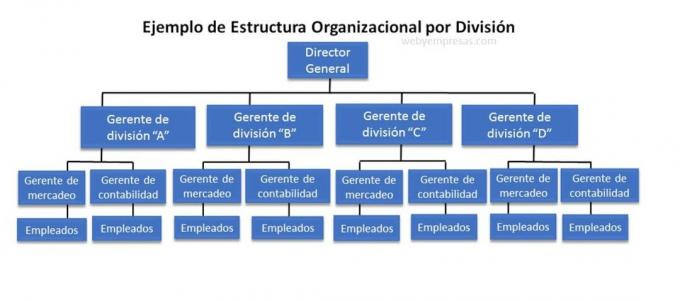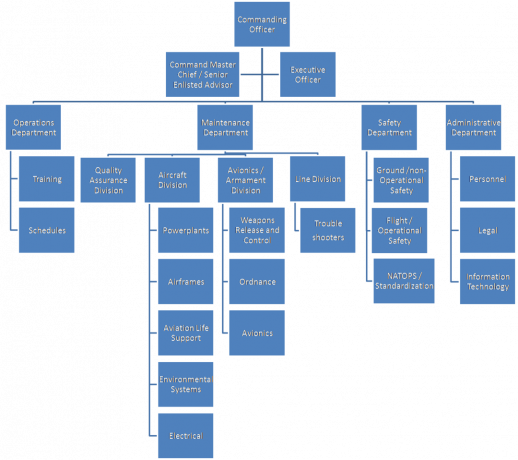He outsourcing is a term in English to describe an outsourcing system or outsourcing used by some companies to delegate some of their internal functions to another company, as a tool to improve performance and productivity.

Advertisements
Although the outsourcing helps simplify activities and to solve some problems in organizations, bringing with it great advantages, also involves dealing with some undesirable drawbacks, such as those described in the following board:
| Advantages | Disadvantages |
| Greater operational efficiency. | Risks of loss of confidentiality. |
| Easy access to technology and specialized personnel. | The subcontracted company requires adaptation. |
| Greater capacity to generate competitive advantages. | Lack of identity of the subcontracted company with the company's culture. |
| Improvements in the quality of products and services. | Reduction of jobs. |
| Reduce operating costs. | They can cause internal conflicts between both companies. |
| Create collaborative networks. | Loss of autonomy. |
| Greater flexibility and ability to adapt to changes. | There is a risk that the subcontracted company does not achieve the expected results. |
Advertisements
As can be seen in the table, outsourcing or externalization is a excellent option for companies that have difficulty carrying out some production or operational processes internally; However, just like its pros, outsourcing has its cons, so it is not a decision to be taken lightly.
To better understand what outsourcing is all about, let's first define its concept and what it consists of, before delving into its advantages and disadvantages.
Advertisements
In this article you will find:
What is outsourcing?
Outsourcing is an externalization process where some activities or functions stop being developed internally by the company, to be executed by another subcontracted company, to which functions are delegated, previously stipulated in a contract entered into between the parts.
It is implemented as a resource that helps companies to optimize productivity, identifying activities or processes that can be improved if they involve third-party specialists to execute them through this modality of outsourcing.
Advertisements
Basically, outsourcing consents to a process of delegation of internal functions of the company, so that another performs them for it, without being part of your payroll, whose purposes can range from increasing productivity, accessing specialized personnel and technology, lowering costs, among others.
This outsourcing can be used for different areas of the company, such as the maintenance of the facilities, the export of merchandise, accounting, legal processes, etc.; therefore, the operations of the subcontracted company will depend, or will be limited, by the specific functions for which its services were contracted.
Advertisements
7 Advantages and Disadvantages of outsourcing
Outsourcing, externalization or subcontracting brings with it a series of advantages and disadvantages, let's see what they are about:
7 advantages
Increased operational efficiency: By delegating functions to a subcontracted company, the operational processes are carried out in a more efficient way, since this company is in charge of to manage the necessary specialized personnel so that everything is executed in a timely manner, avoiding setbacks and complications.
Easy access to technology and specialized personnel: One of the reasons why a company usually opts for outsourcing is because some functions or processes require technology and specialized personnel, which escapes from the hands of the company itself, since managing it internally implies greater investment and time.
As is the case with the maintenance of facilities and machinery in highly technical industries, whose internal knowledge of the company are limited to the productive and operational processes, or the maintenance and repair of the fleet of trucks of a company. Therefore, a subcontracted company is a way to access these resources in an easier way and without so many complications.
Greater capacity to generate competitive advantages: Hiring the services of another company to perform some functions can generate a competitive advantage over other companies in the sector, for example, for the marketing management, since they can develop more effective strategies for the marketing and sales process, and thus better position the brand in the market. market.
Improvements in the quality of products and services: A subcontracted company can detect and correct failures in the quality of the products and services that it company offers, that this alone has gone unnoticed, or has not been able to correct effective; proposing improvements from their professional perspective and supervising them.
Reduce operating costs: For many companies this is one of the most significant advantages, since the outsourcing service is less expensive than investing in salaries. personnel, technology, machinery, equipment, among other resources, which can be avoided by hiring these companies to supply them; paying only the provision of the service according to the conditions of the contract.
Create collaboration networks: By subcontracting the specialized services of these companies, they have their own contact networks of allies and collaborators, improving cooperation and business relations. with third-party companies, relationships and collaborations that are more difficult to establish without the help of outsourcing, especially when the company does not have much recognition in the market.
Greater flexibility and ability to adapt to changes: The outsourcing of functions helps the company to be more flexible and with a greater capacity to adapt to external changes, since the market is constantly changing, and these companies provide a broader perspective of the current situation of the company that allow them to create effective strategies to adapt to the conditions changing.
7 Disadvantages
Risks of loss of confidentiality: This is one of the most significant risks of outsourcing, because depending on the area or functions to be outsourced, it is necessary provide confidential information to these outsourced companies, which may lead to the leakage of valuable information for use in their own benefit, or to sell it to the competition, such as launching new projects, financial and legal information, formulas secret etc
Therefore, it is important to clearly define the terms and conditions of confidentiality in the closing of the contract, to reduce these risks.
The subcontracted company requires adaptation: No matter how much experience an outsourced company may have, a prudent time is required to adapt to the internal functioning of the company, because, Although they have a certain degree of autonomy, they must engage and work in coordination with the company, to achieve the results for which it was designed. hired.
Lack of identity of the outsourced company with the company's culture: This is a very important point that you should take into account before choosing an outsourcing service, because it is I need the company to be hired to identify with its organizational culture, that is, its values, thoughts and goals; otherwise, there is a risk of discrepancies between both companies, making it difficult to achieve results.
Job Reduction: Outsourcing reduces jobs, this is because, by contracting the services of these external companies, they are responsible for supplying the workers that are necessary to execute the functions for which their services were contracted, leaving the limited employment relationship between the workers and said company subcontracted.
They can cause internal conflicts between both companies: This is due to the fact that labor tension can be generated due to discrepancies in the ways of proceeding between both companies, in addition, many times the Hiring company is not open enough to accept suggestions and changes, making outsourcing work difficult.
Loss of autonomy: Although the contracted company must fulfill the functions for which it was contracted, it has autonomy in the way it proceeds and manages its personnel to achieve the results entrusted, therefore, to contract outsourcing services, it must be very clear to what extent the functions are delegated, stipulating the limits of the outsourcing.
There is a risk that the subcontracted company does not achieve the expected results: This is due to the lack of professionalism of some companies to work under this modality, the lack of clear specifications in the conditions of the contract, and the lack of fluidity in communication between both companies, causing the results not to meet the expectations of the company that hire.


